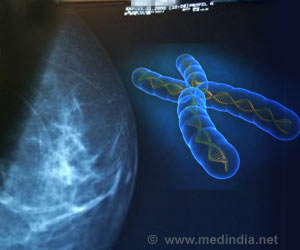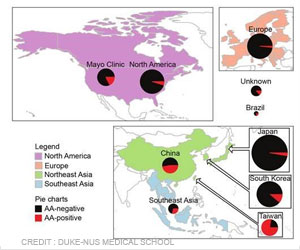A tumoral development caused by benzo[a]pyrene present in cigarette smoke, burnt wood fumes, barbecued meat can be prevented with nicotinamide riboside, a component of vitamin B3.
Highlights
- Supplementing cell cultures with nicotinamide riboside can protect cells and prevent malignant transformation
- Nicotinamide riboside is one of the components of vitamin B3
The research project was supported by the São Paulo Research Foundation (FAPESP) and coordinated by Ana Paula de Melo Loureiro, who is a professor at the University of São Paulo's School of Pharmaceutical Sciences (FCF-USP), Brazil.
Loureiro said that the main idea is to identify the cellular pathways or sequences of the biological reactions that are involved in the development of cancer. Therefore, it is necessary to find possible targets for prevention and treatment of the disease.
The results show that by supplementing cell cultures with nicotinamide riboside can protect cells and prevent malignant transformation. Nicotinamide riboside is one of the components of vitamin B3.
The research team wanted to investigate the process as to how this happens and if the compound can be used in chemoprevention.
The research team performed some experiments with normal lung cells, particularly bronchial epithelial cells. The cultures were then exposed to 0.5 and 1 micromolar (μM) benzo[a]pyrene for about seven days.
After being exposed to benzo[a]pyrene for the first hour, the research team observed a drop in the levels of metabolites in the production of energy for cells.
The cells were able to readapt metabolically throughout the exposure period, and at the end of the study, the levels of metabolites increased in exposed cells than the control group.
"It was for this reason that we had the idea of supplementing the cultures with nicotinamide riboside, a precursor to nicotinamide adenine dinucleotide [NAD+], which is essential to cellular metabolism and to the production of ATP [adenosine triphosphate, a molecule that stores energy for cell use]," said Loureiro.
The supplementation with nicotinamide riboside (1 μM) began only 24 hours before being exposed to benzo[a]pyrene. The dosage was renewed every day with the latter, as benzo[a]pyrene was absorbed quickly and biotransformed and has to be replenished in the cell cultures on a daily basis, explained Loureiro.
Link between Benzo[a]pyrene and Tumoral Development
The cells were transferred to a semi-solid medium containing agarose at the end of the seven-day period. Agarose is a polysaccharide obtained from algae that prevent adhesion to the culture dish.
The research team said that a regular epithelial cell was not able to grow in this semi-solid medium without Anchorage.
Loureiro said, "To make this possible, the expression of some genes and proteins must be altered to favor tumor development, for example by silencing the expression of cadherins [calcium-dependent adhesion molecules that form junctions to bind nearby cells together]."
The research team analyzed the performance during the incubation period. The results showed the occurrence of alterations in the DNA alterations (both genetic and epigenetic).
Genetic alterations are lesions that caused mutations in the nucleotide sequence, and epigenetic alterations increase the levels of 5-methylcytosine, which alters gene expression.
The cells that were grown in the semi-solid medium showed global hypomethylation, which is a reduction in levels of 5-methylcytosine, a characteristic of tumor cells.
The supplementing cells that are exposed to the carcinogen nicotinamide riboside showed positive results, as they were not able to grow in the agar medium. The results showed a similar behavior to that of the control cells, which were not exposed to benzo[a]pyrene.
Source-Medindia
















